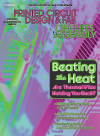Features Articles

Adapting Covid-era processes to a more rational demand level.
I frequently say that program management is the most challenging job in the electronics manufacturing services (EMS) industry because program managers are expected to keep programs on schedule with little control over the variables that need to align for them to be successful in their jobs. Supply-demand imbalances in both the supply chain and with customers have made that job even harder. And, just like those late night informercials that tease “but wait, there’s more,” the chaos of the past two years is about to get worse.
The new challenge program managers are starting to see this year is a return to historical demand in many customer industries. Material availability is starting to improve in some areas, but not all part manufacturers are relaxing the draconian noncancellable, non-returnable (NCNR) policies put in place during the supply-demand imbalance. That basically means that even if customer demand is coming down, in some cases, orders scheduled for delivery several quarters from now can’t be adjusted with some suppliers because extended NCNR terms put in place when chipmaking capacity was at a premium are still present.
 The industry’s next generation is on the rise.
The industry’s next generation is on the rise.
I am continually amazed at how many people I see and run into at each industry meeting or event – especially at technical meetings when I’m watching people leave one room and enter another for the next session. It strikes me a bit like watching the changing of the guard at Buckingham Palace – people leave one room to enter the next to do the same thing, and repeat!
One thing that makes our industry so strong and enduring is having so many people work together to contribute to developing and refining technologies, writing standards for those technologies and processes, and sharing their knowledge with others to fully understand those technologies and standards. And then as they say, “repeat.”
 Effective electrification could hold the keys to the future of air travel and air superiority.
Effective electrification could hold the keys to the future of air travel and air superiority.
Many feel our lives enriched by convenient and fast mobility. Our societies and economies have become dependent on the ability to get places quickly in planes, trains and automobiles, but easy mass access to air and road travel now appears at odds with the survival of the planet. We need a zero-emission solution if we are to continue enjoying its benefits, and electrification based on renewable energy appears to offer a way forward. Adoption of electric vehicles is accelerating while development of the internal combustion engine for private automobiles has all but stopped. But what are the prospects for electric aviation?
 Identify the areas of variance in stencil design and adjust SPI programming accordingly.
Identify the areas of variance in stencil design and adjust SPI programming accordingly.
 Don’t underestimate the speed and execution of a smaller shop.
Don’t underestimate the speed and execution of a smaller shop.
Def.: Mom and Pop Shop. A common characterization of a family-owned company, usually small, closely held, and tightly run under original or second-generation ownership; often used as a term of derision or condescension by members of large companies; unsophisticated, provincial, or parochial; perceived as lacking in the most current skills, tools, or manufacturing methods. Often viewed as predisposed to surviving as a business and ensuring family succession first, with growth for growth’s sake a secondary priority. Not innovative. Inflexible in business practices. Rarely for sale. Content to operate in their space. Stuck in their ways.
Your operation? Or perhaps someone’s cursory impression of it? Certainly you have heard someone belittle a company by saying, “They’re nothing more than a mom-and-pop operation.” How did you as an owner feel when you got wind of that summary judgment? Was your comeback equally dismissive and snap-judgmental (“Typical remarks by someone who’s never met a payroll in their life”)?
Not enough solder? Blame the via design!
Vias in pads can be “solder thirsty” and suck up solder from pads at terminals during reflow, creating what may appear to be solder insufficiency at the joints. This problem is typical of a via-in-pad design. It’s unpredictable as well; solder will randomly tend to fill those vias during the reflow process and some locations may appear worse than others, for example.
Press Releases
- KYZEN Announces Exclusive Partnership with Manufacturers’ Representative Restronics Florida
- Koh Young will Showcase its Award-winning Inspection Solutions at SMTconnect with SmartRep in Hall 4A.225 on 11-13 June 2024 in Nuremberg, Germany
- Precision Automation & Assembly Appointed as New England Rep for Kubler US
- Precision Automation & Assembly Appointed as New England Rep for Kubler US


